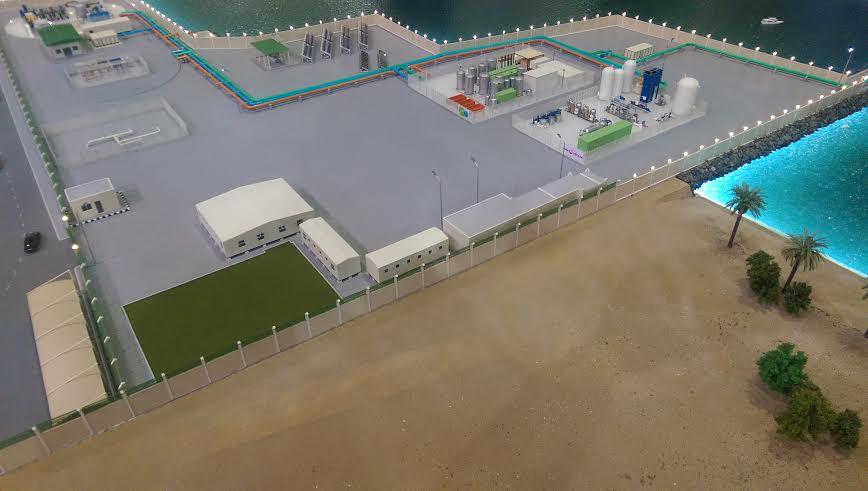
Desalination is one reason why the Gulf region has enjoyed spectacular growth over the past two decades. Harvesting fresh water out of the sea is also one long-term economic and environmental problem that countries such as the United Arab Emirates will have to confront.
Effluent resulting from removing salts and minerals from seawater is often discharged into the Gulf, creating one environmental problem. And while most desalination plants in the Middle East are actually cogeneration plants that generate electricity from natural gas, heightened demand for power in the summer means many such plants generate more potable water than can be consumed. In turn, the unneeded water is released into the Gulf, creating even more ecological burdens. And at a pragmatic level, fossil fuels used to operate power-hungry desalination plants means less of them can be exported or even used for local electricity and power requirements.
Desalination fueled from solar or other renewables offer potential, but as of now the amount of energy required has not made renewable energy a viable alternative. A pilot project launched by Masdar in Abu Dhabi, however, could pave the way to a future where desalination could be possible with less of a carbon footprint.
In 2013, Masdar began exploring options to research renewable-powered desalination. Last year the company selected four companies to build pilot desalination stations in Ghantoot, on the border of the Emirates of Abu Dhabi and Dubai. Abengoa, Degrémont, Veolia and Trevi Systems are in the process of building their version of a next-generation seawater desalination plant. During a talk I had here in Abu Dhabi with Mohammad Abdelqader El Ramahi, an associate director within Masdar’s engineering and operations group, he explained the process the project will undertake over the next few years.
Currently each of the four companies is shipping its equipment to the UAE, and over the next several weeks their construction will be underway. The desalination plants are all on track to be completed this summer. Once they are online, Masdar’s engineers will assess the operational efficiency and cost-effectiveness of the plants and will be able to make their final recommendations of which technologies were most effective by August 2016.
At first conventional power will be used to ensure each of the desalination plants will work as their designers intended; they will then transition to the consumption of solar power later on during the project. Masdar has set a goal of a maximum of 3.6 kilowatt-hours per cubic meter of produced water, with the total output a modest 1,500 cubic meters a day — enough to meet the water consumption needs of 500 local homes.
Masdar has stated it has a goal to have a large-scale facility operational by 2020 somewhere in the UAE or greater Gulf region. But it is not just efficiency and technologies that will be evaluated. As Mr. Ramahi told me, “This is not just a one-off project; we will need buy from utilities and other stakeholders, too.”
Considering the fact the Gulf generates 40 percent of the world’s desalinated water, it is critical this billion-dollar industry adopts new technologies to lessen its impact on the world’s environment.
Image credit: Leon Kaye
Based in California, Leon Kaye has also been featured in The Guardian, Clean Technica, Sustainable Brands, Earth911, Inhabitat, Architect Magazine and Wired.com. He shares his thoughts on his own site, GreenGoPost.com. Follow him on Twitter and Instagram.
Disclosure: Masdar covered Leon Kaye’s travel costs to Abu Dhabi Sustainability Week.

Leon Kaye has written for 3p since 2010 and become executive editor in 2018. His previous work includes writing for the Guardian as well as other online and print publications. In addition, he's worked in sales executive roles within technology and financial research companies, as well as for a public relations firm, for which he consulted with one of the globe’s leading sustainability initiatives. Currently living in Central California, he’s traveled to 70-plus countries and has lived and worked in South Korea, the United Arab Emirates and Uruguay.
Leon’s an alum of Fresno State, the University of Maryland, Baltimore County and the University of Southern California's Marshall Business School. He enjoys traveling abroad as well as exploring California’s Central Coast and the Sierra Nevadas.














